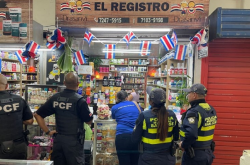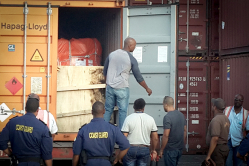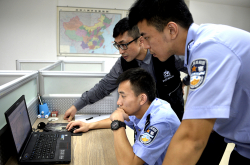LYON, France – Intellectual property (IP) rights play a vital role in protecting innovation and supporting competitiveness. With adequate IP protection and support, young innovators can mobilize and help advance developments in the fields of business and science to improve health outcomes. In this context, the theme of this year’s World IP Day is ‘IP and Youth: Innovating for a better future’.
Conversely, intellectual property rights (IPR) infringement has severe economic and social repercussions. Often considered a low risk - high reward type of crime, it puts millions of jobs at risk and results in billions of dollars in lost revenue.
The US Chamber of Commerce estimates that USD 29 billion are lost each year because of digital piracy. Piracy threatens legitimate markets like music (a USD 82 billion industry representing 2 million jobs in the European Union and the United Kingdom), film (USD 81 billion industry), TV (USD 243 billion industry worldwide) and books (USD 93 billion industry).
Illicit markets pose dangerous health risks
Amongst other illicit markets, fraudulent food and fake medicine pose serious health risks. In certain cases, criminals deliberately mislabel products, substituting whole foods or ingredients with cheaper alternatives. Medicines can also be ineffective and dangerous where they are contaminated or badly stored. Illicit trade represents a global threat as it links to and sometimes funds other types of crime, such as human trafficking, drug trafficking, corruption, bribery and money laundering.
INTERPOL coordinates global and regional operations to help combat this problem. Amongst key initiatives, Operation Pangea aims to raise public awareness of the risks associated with buying medicines from unregulated websites. With regard to Operation Opson, participating agencies from law enforcement, customs and national food regulatory bodies conduct checks at shops, markets, airports and seaports to locate and confiscate counterfeit or substandard food products.
Transnational threat of digital piracy
With the rapid development of digital technologies, the internet has become the preferred space for criminals to offer pirated content, granting them access to a global ‘consumer’ base. However, by streaming or downloading such material, people are at risk of identity theft, computer viruses, malware, and ransomware.
The transnational aspect of this crime makes it harder for countries to safeguard their intellectual property rights and prosecute the criminals involved, as the servers and offenders mostly operate beyond their borders. The COVID-19 pandemic has only increased the use of online piracy and aggravated its consequences.
The threat of online piracy and associated risks raises the question, how can the global community enforce and protect intellectual property in this digital age? Global cooperation between public and private stakeholders is essential, both in facilitating the prosecution of offenders and in ensuring a better protection of IPR.
I-SOP project: supporting collaboration in anti-piracy action
In this context, the INTERPOL Stop Online Piracy Project (I-SOP) maximizes resources and knowledge through cooperation and strategic partnerships with both public and private stakeholders, particularly through its Advisory Group on IP Crime and Digital Piracy.
By working in conjunction with member countries and private and public bodies, the I-SOP project aims to counter online piracy and crimes involving IPR infringement. As part of this collaboration, INTERPOL engages law enforcement agencies, dismantling illicit online marketplaces, as well as targeting criminal networks and confiscating their assets.
The I-SOP project works in partnership with the International Intellectual Property Crime Investigators College (IIPCIC). Aimed at both new and experienced officers, IIPCIC delivers IP crime training, including a module on digital piracy. Such training ensures that INTERPOL member countries acquire the relevant skills needed to identify and investigate this crime.
The 15th International Law Enforcement IP Crime Conference will be held in Seoul, Republic of Korea in September 2022. The Conference Training Workshop will have a special focus on online piracy, underscoring the close partnership required to tackle this crime.
Related news

Global illicit medicines targeted by INTERPOL operation
31 October 2023








